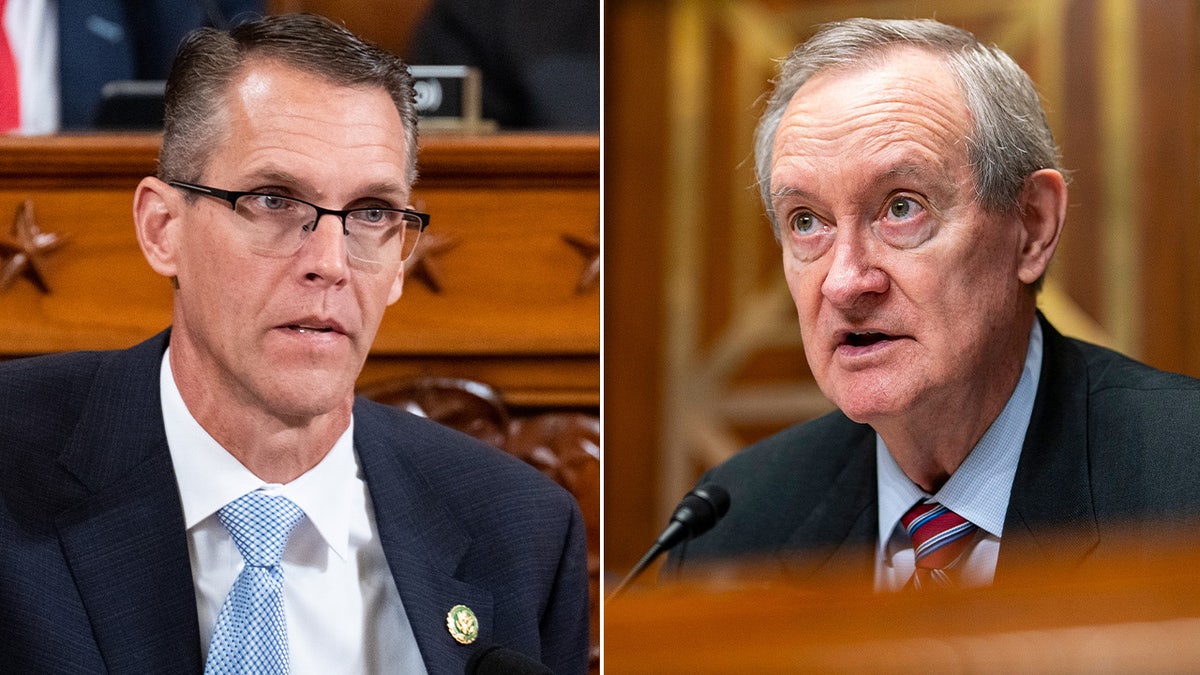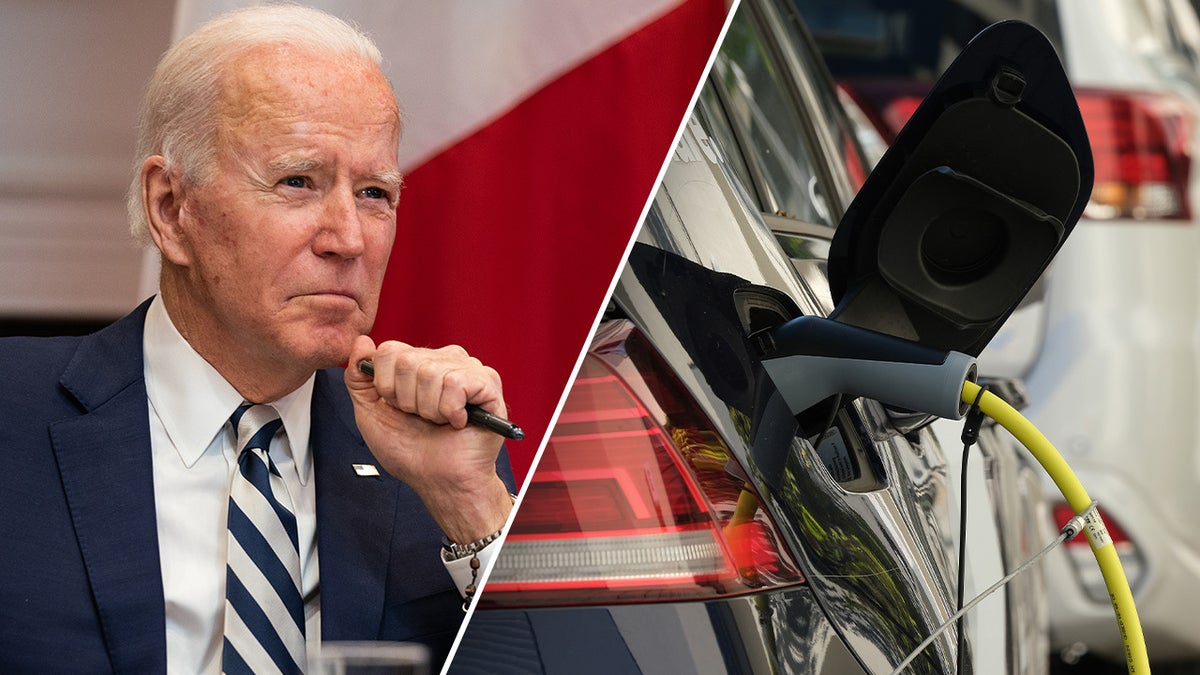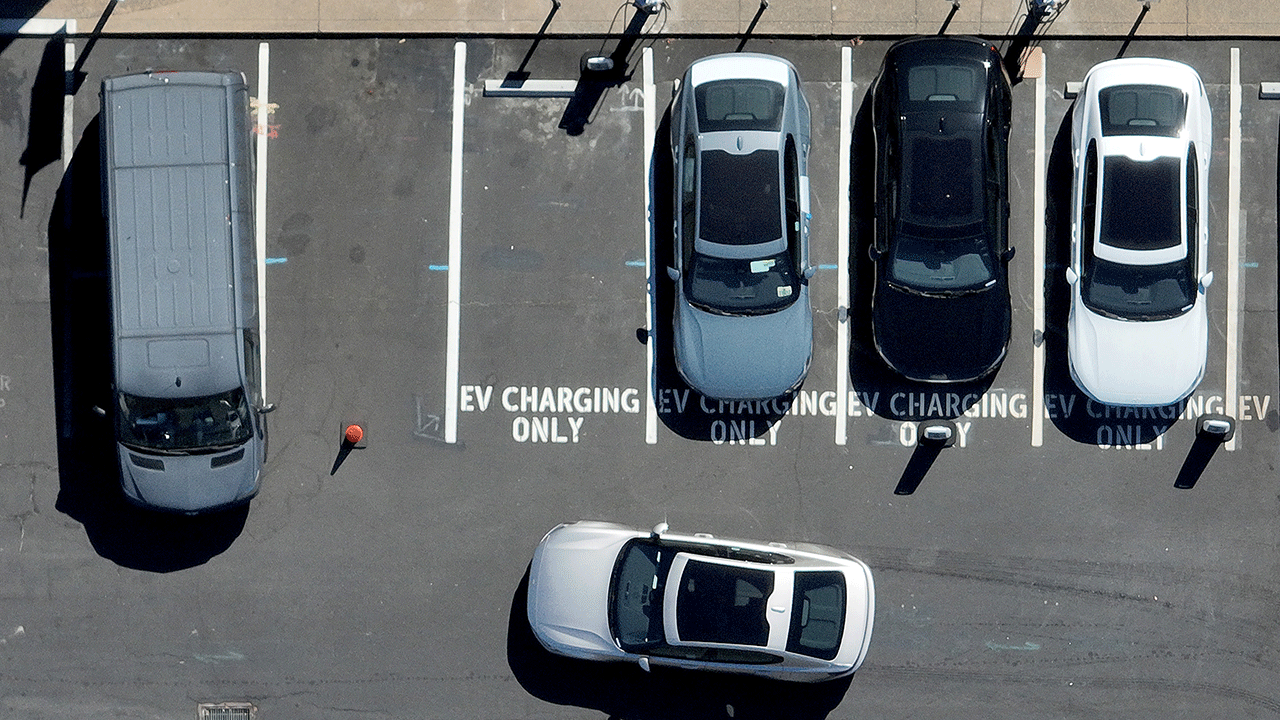'Pump the brakes': Ohio workers protest EV mandates
Scott Hayes of Toledo Refining Company joins 'Fox & Friends First' to discuss Ohio industry workers' protest against green energy pushes.
FIRST ON FOX: A bicameral coalition of more than 130 Republican lawmakers penned a letter to the White House on Thursday, urging it to withdraw proposed tailpipe emissions regulations, forcing a transition to electric vehicles (EV).
The Republicans — led by Rep. Randy Feenstra, R-Iowa, and Sen. Mike Crapo, R-Idaho — argued that the regulations issued by the Environmental Protection Agency (EPA) are a "de facto EV mandate" phaseout of traditional internal combustion engine vehicles. They addressed the letter to President Biden and Shalanda Young, the director of the Office of Management and Budget, which is expected to soon finalize the regulations.
"President Biden has made his intentions clear," Feenstra said in a statement. "He would rather force American families — who are already facing financial hardship under the weight of inflation spurred by trillions in wasteful government spending — to buy electric vehicles to advance his Green New Deal agenda than allow folks to choose the best car or truck for their families, businesses, and farms at an affordable price."
"This misguided decision also strengthens China while weakening our economy because the critical materials needed to manufacture electric vehicles are primarily sourced from China," the Iowa lawmaker added. "Alongside Senator Mike Crapo, I’m proud to lead nearly 140 of my colleagues in urging President Biden to withdraw the proposed rule that would attempt to replace liquid fuels and combustion engines with unreliable and unaffordable electric vehicles."

Rep. Randy Feenstra, R-Iowa, left, and Sen. Mike Crapo, R-Idaho, right, led 137 of their House and Senate colleagues in opposing President Biden's "de facto EV mandate" on Thursday. (Getty Images)
Feenstra added that stories of Americans stranded in the cold waiting for their EV to charge during the winter provided further evidence that mandating EVs nationwide is "ridiculous."
Overall, under the proposal, which EPA unveiled in April 2023, the White House projected that 67% of new sedan, crossover, SUV and light truck purchases would be electric by 2032. In addition, up to 50% of bus and garbage truck, 35% of short-haul freight tractor and 25% of long-haul freight tractor purchases could also be electric by then.
The White House said at the time that the tailpipe emissions proposal, which represents the most aggressive proposal of its kind ever proposed, would "accelerate the clean vehicle transition" and reduce oil imports by 20 billion barrels.
17 RETIRED MILITARY OFFICIALS RAISE ALARM ON BIDEN'S ELECTRIC VEHICLE PUSH
However, the proposal has faced widespread opposition from Republicans, as well as some Democrats and energy industry groups who say it will reduce consumer choice, lead to higher prices and benefit China, which dominates the EV battery supply chain. In December, the House voted 221-197, with five Democrats joining 216 Republicans, to pass a resolution nixing the EPA's proposal, but that bill has yet to receive a Senate vote.

President Biden previously set a goal of ensuring 50% of car purchases are electric by 2030. The White House said EPA's proposed tailpipe rules would provide a "clear pathway for a continued rise in EV sales." (Anna Moneymaker/Pool/Getty Images | Sean Gallup/Getty Images)
"The reality is that most Americans still prefer the internal combustion engine vehicle, and EPA’s proposed rule unnecessarily restricts consumer choice and forces expensive EVs onto Americans at a time when they can least afford it," Feenstra, Crapo and the other Republicans wrote in their letter on Thursday.
"Major U.S. automakers have recently lowered their targets and pulled back planned investments in EVs due to low consumer demand and struggling EV units," they continued. "Further, automobile dealers across the country have said EVs continue to sit unpurchased on dealership lots, despite automakers accepting massive losses and unsustainable government incentives."
Late last year, thousands of auto dealers nationwide, including dealers in all 50 states and who collectively sell every major car brand, called on Biden to rescind the EPA proposal. They warned that, while some consumers are happy with EVs, demand is not keeping pace with supply and their lots are filling up with unwanted EVs.
VIRGINIA DEMOCRATS UPHOLD STATE'S EV MANDATE DESPITE GROWING OPPOSITION: 'DEFY COMMON SENSE'
Further, the Republicans argued the Biden administration's proposal would make the U.S. more dependent on foreign supply chains, particularly those established in China. According to the International Energy Agency, China produces about 75% of all lithium-ion batteries and boasts 70% of production capacity for cathodes and 85% for anodes, two key parts of such batteries.

Even factoring in generous federal and state subsidies, the average cost of an EV is about $52,500, according to the Alliance for Automotive Innovation, while the average gas subcompact car costs $24,000. (Justin Sullivan/Getty Images)
"Consequences of rules and regulations driven by the Biden Administration’s radical green agenda drastically reduce consumer choice and the affordability of vehicles available to Americans," said Crapo. "Americans deserve access to affordable, reliable vehicles fueled by American-made energy products, not those primarily supplied by China."
According to the Alliance for Automotive Innovation, an industry group that represents several major automakers, 9.3% of total car purchases in the U.S. last year were electric or plug-in hybrid, up from 7% in 2022. That uptick was driven largely by purchases in California and urban areas where the majority of EV purchases are made.
CLICK HERE TO GET THE FOX NEWS APP
At the same time, EVs remain far more expensive than traditional gas-powered cars. Even factoring in generous federal and state subsidies, the average cost of an EV is about $52,500, according to the Alliance for Automotive Innovation, while the average subcompact car costs $24,000.
In addition to Crapo, 23 other members of the Senate signed the letter, including Energy and Natural Resources Chairman Joe Manchin, D-W.Va., and Ranking Member John Barrasso, R-Wyo. Additionally, 113 House members signed the letter, including GOP Conference Chair Elise Stefanik, R-N.Y., and Chief Deputy Whip Guy Reschenthaler, R-Pa.
The White House did not immediately respond to a request for comment.














































